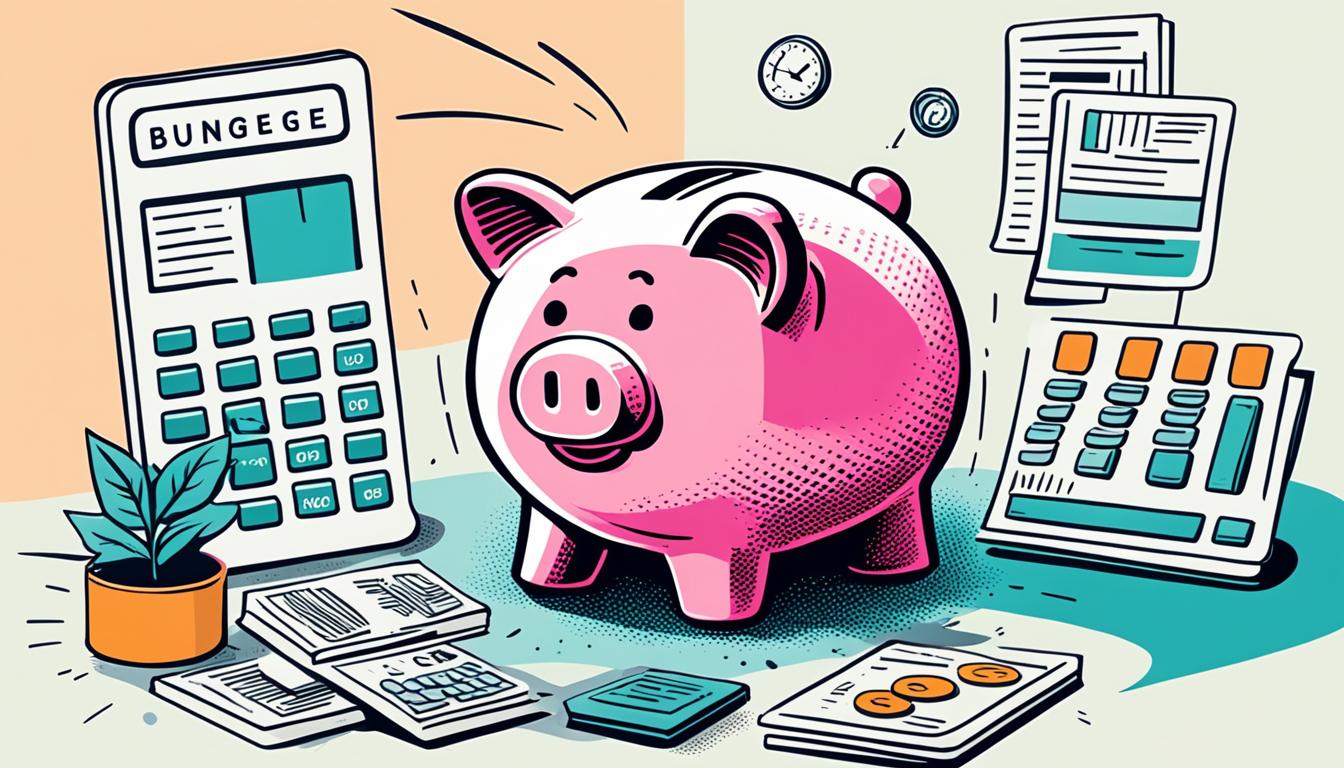Regularly reviewing your monthly budget helps you stay aware of your financial situation, identify overspending, and track progress toward your savings goals. By categorizing expenses and adjusting spending habits, you can optimize your financial plan for better results. Making small changes based on your review keeps your savings on track and ensures your plan remains flexible to meet changing circumstances. Keep exploring ways to refine your budget to build a stronger financial future.
Key Takeaways
- Regularly analyze your expenses to identify overspending and areas for cost reduction.
- Compare actual savings and spending against your goals to adjust contributions and priorities.
- Reassess and revise your financial goals based on recent spending patterns and life changes.
- Explore higher-yield savings or investment options to enhance your financial growth.
- Maintain flexibility in your budget to accommodate unexpected costs and ensure long-term success.

Reviewing your monthly budget is essential for staying on top of your finances and making informed decisions. It’s the time when you can evaluate whether your current savings strategies are working and identify areas where you might be overspending. By regularly analyzing your expenses, you gain a clearer picture of your financial health and can make adjustments that keep you on track toward your goals. This process isn’t just about crunching numbers; it’s about understanding your spending habits and improving them.
Regularly reviewing your budget helps you understand your spending habits and stay on track with your financial goals.
When you sit down to review your budget, start with expense tracking. This means going through your bank statements, receipts, and digital transactions to categorize every dollar spent. Tracking expenses accurately helps you see where your money is going and highlights patterns you might not notice day-to-day. For example, you might discover that small daily purchases add up considerably over a month, or that subscription services you no longer use are quietly draining your funds. With a detailed expense tracking system in place, you can pinpoint unnecessary expenses and redirect that money toward your savings goals or debt repayment.
In terms of savings strategies, this review period is crucial. Are you setting aside enough each month? If not, now’s the time to adjust your savings plan. Consider increasing automatic transfers to your savings account or exploring new savings options like high-yield accounts or investment funds. If you find that your expenses are higher than expected, see where you can cut back without sacrificing your essentials. For example, reducing dining out, renegotiating bills, or finding more affordable alternatives can free up money to bolster your savings. Remember, the key is consistency. Small, regular contributions often lead to greater financial security over time.
Additionally, use your budget review to set new targets or revise existing ones. Maybe you’ve achieved some savings milestones and want to challenge yourself further. Or perhaps unexpected expenses have arisen, prompting adjustments to your savings plan. The goal is to create a flexible, realistic budget that adapts with your circumstances. Incorporate lessons learned from expense tracking into your savings strategies by prioritizing needs over wants and being disciplined about your spending. Over time, these habits will help you build a more resilient financial foundation.
Ultimately, your monthly budget review is a powerful tool for financial growth. It keeps you aware of your financial standing, encourages disciplined expense tracking, and helps refine your savings strategies. When you approach it regularly and with a clear purpose, you gain control over your money rather than letting it control you. This proactive approach not only ensures you’re meeting your financial goals but also boosts your confidence in managing your money effectively. Remember that maintaining a well-maintained bicycle with proper tire care and gear shifting can be a metaphor for managing your finances — both require regular attention and adjustments to keep them running smoothly.
Frequently Asked Questions
How Often Should I Review My Budget?
You should review your budget at least once a month to stay aligned with your financial goals. Regular check-ins help you track progress and identify areas needing adjustments, ensuring your plan remains flexible. If you experience major life changes or unexpected expenses, consider reviewing your budget more often. This ongoing process keeps you proactive, making it easier to adapt and stay on course toward your financial success.
What Tools Are Best for Tracking Expenses?
Did you know that 65% of people find digital budgeting tools easiest for expense tracking? You should try apps like Mint or YNAB, which help with expense categorization and real-time updates. These tools make it simple to monitor spending, set limits, and stay on budget. Using digital tools saves time and reduces errors, giving you a clear picture of your finances and helping you make smarter money decisions.
How Do I Handle Unexpected Expenses?
When unexpected expenses arise, you should prioritize them by evaluating their urgency and impact. Incorporate emergency planning into your budget so you’re prepared for surprises. Quickly categorize expenses, cover essentials first, and then adjust your spending in other areas. This approach helps you manage surprises smoothly, ensuring you stay on track financially without stress. Regularly updating your plan with these strategies keeps your budget resilient and flexible.
Should I Set Aside an Emergency Fund?
Did you know that 78% of Americans say they can’t cover a $1,000 emergency? You should definitely set aside emergency savings to build a financial cushion. This ensures you’re prepared for unexpected expenses without derailing your budget. By prioritizing an emergency fund, you create a safety net that gives you peace of mind and stability, making it easier to handle life’s surprises confidently and stay on track with your financial goals.
How Can I Reduce Unnecessary Spending?
To reduce unnecessary spending, start with frugal shopping by comparing prices and seeking discounts, which saves money daily. Conduct regular subscription audits to cancel unused or unnecessary services, freeing up your budget. Avoid impulse buys by creating a shopping list and sticking to it. Track your expenses to identify patterns of overspending. These steps help you cut costs effectively, making your budget more manageable and aligned with your financial goals.
Conclusion
Regularly reviewing your budget isn’t just about tracking expenses; it’s about adapting and thriving. Some believe that sticking rigidly to a plan guarantees financial success, but flexibility often leads to better results. By adjusting your budget as needed, you stay aligned with your goals and respond to life’s changes. Remember, your financial plan is a living tool—embrace its evolution for long-term success and peace of mind.









